初一英语上册Units4-6复习课件
- 格式:ppt
- 大小:648.50 KB
- 文档页数:41
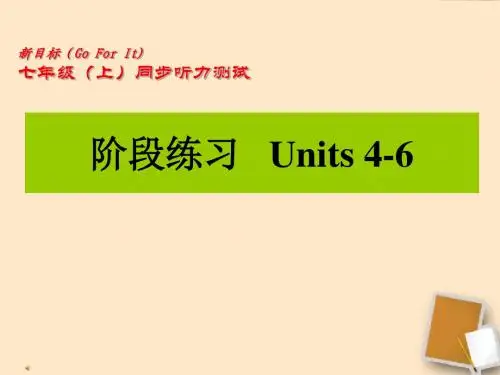
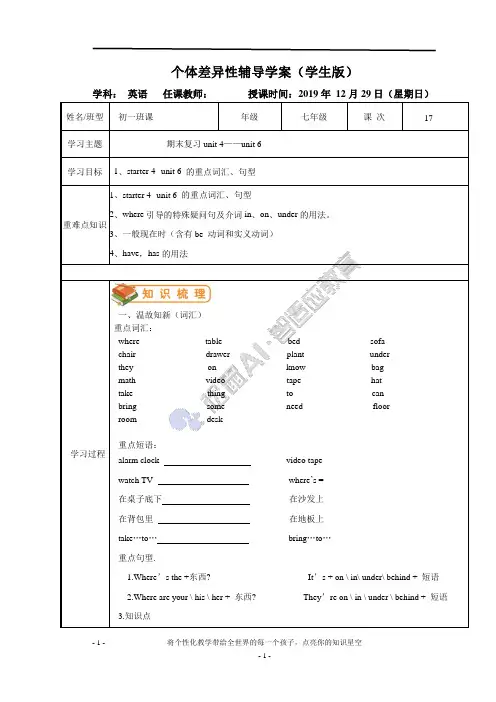
个体差异性辅导学案(学生版)学科:英语任课教师:授课时间:2019年12月29日(星期日)姓名/班型初一班课年级七年级课次17学习主题期末复习unit 4——unit 6学习目标1、starter 4--unit 6 的重点词汇、句型重难点知识1、starter 4--unit 6 的重点词汇、句型2、where引导的特殊疑问句及介词in、on、under的用法。
3、一般现在时(含有be 动词和实义动词)4、have,has的用法学习过程一、温故知新(词汇)重点词汇:where table bed sofachair drawer plant underthey on know bagmath video tape hattake thing to canbring some need floorroom desk重点短语:alarm clock video tape ______________watch TV where’s =______________在桌子底下在沙发上______________在背包里在地板上________________take…to…bring…to…______________重点句型.1.Where’s the +东西? -----It’s + on \ in\ under\ behind + 短语2.Where are your \ his \ her + 东西? ----- They’re on \ in \ under \ behind + 短语3.知识点1.介词:是用以放在名词或代词之前,表明该名词或与其词之间某种关系的一类词。
(不能单独使用,需与某一名词或代词等搭配成介宾短语)(on \ in \ under )eg: on the bed2.定冠词the 的用法:a. 常用在特指的单复数名词前,指某人,某物,某些人或某些物.eg: The students are boys.b. 用于双方都知道的人或物.eg: The girl is my friend.c. 上文提到的人或物,下文再次提到.eg: I have a pen. The pen is red.d. play后跟球类名词时,不用the 。
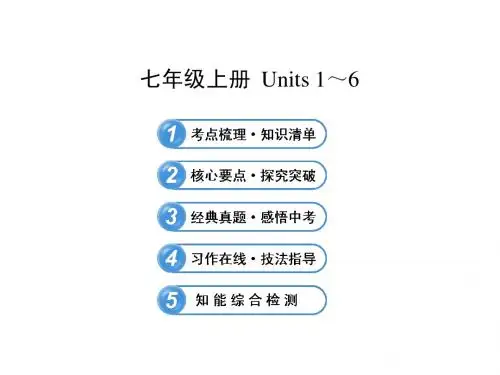
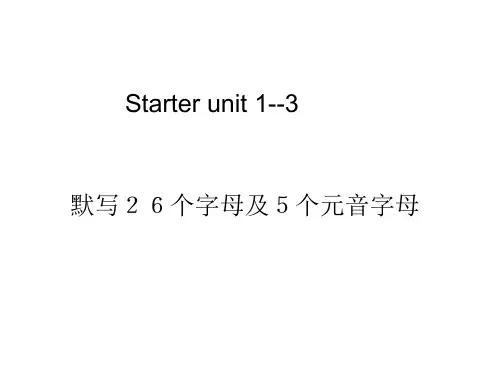



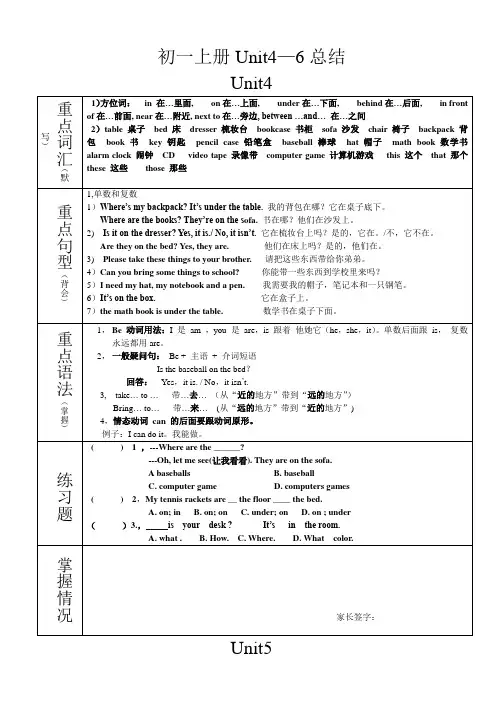
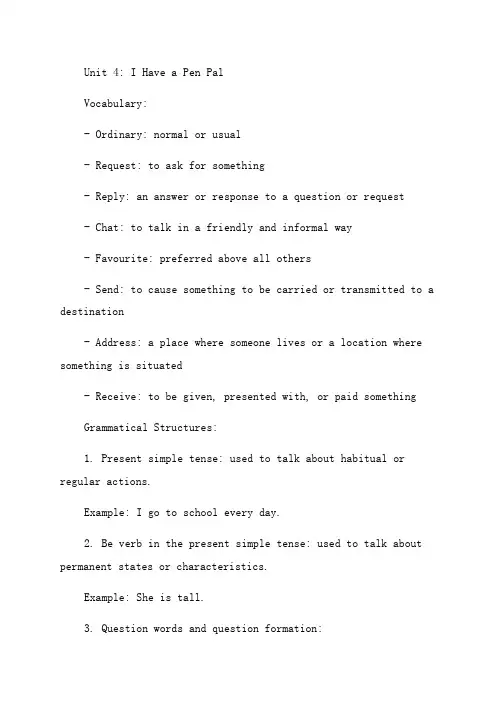
Unit 4: I Have a Pen PalVocabulary:- Ordinary: normal or usual- Request: to ask for something- Reply: an answer or response to a question or request- Chat: to talk in a friendly and informal way- Favourite: preferred above all others- Send: to cause something to be carried or transmitted to a destination- Address: a place where someone lives or a location where something is situated- Receive: to be given, presented with, or paid somethingGrammatical Structures:1. Present simple tense: used to talk about habitual or regular actions.Example: I go to school every day.2. Be verb in the present simple tense: used to talk about permanent states or characteristics.Example: She is tall.3. Question words and question formation:- Wh- questions: used to ask about specific information.Example: Who is your pen pal?- Yes/No questions: used to ask for confirmation or denial.Example: Do you have a pen pal?4. Possessive adjectives: used to show ownership.Example: This is my cat.5. Prepositions of place: used to show the location of something.Example: The pen is on the table.Unit 5: Do you have any hobbies?Vocabulary:- Collect: to bring together a number of things- Stamp: a small piece of paper indicating payment of a fee - Matchbox: a small box in which matches are kept- Build: to construct something by putting parts or materials together- Model plane: a small replica of an airplane- Calligraphy: decorative handwriting or handwritten lettering- Karate: a martial art developed in JapanGrammatical Structures:1. Present simple tense: used to talk about habitual or regular actions.Example: She plays tennis every Saturday.2. Question words and question formation:- Wh- questions: used to ask about specific information.Example: What is your hobby?- Yes/No questions: used to ask for confirmation or denial.Example: Do you collect stamps?3. Frequency adverbs: used to show how often something happens.Example: He often goes swimming.Example: My hobby is more interesting than yours.Unit 6: It's Raining!Vocabulary:- Present: being or occurring in a particular place or position- Rain: moisture condensed from the atmosphere that falls visibly in separate drops- Windy: characterized by or exposed to strong winds- Snowy: characterized by or exposed to falling snow- Sunny: having a bright and shining appearance- Cloudy: covered or obscured by clouds- Temperature: a measure of the warmth or coldness of an object or substanceGrammatical Structures:1. Present simple tense: used to talk about habitual or regular actions.Example: It often snows in winter.2. Be verb in the present simple tense: used to talk about permanent states or characteristics.Example: The weather is usually hot in summer.3. Question words and question formation:- Wh- questions: used to ask about specific information.Example: What's the weather like today?- Yes/No questions: used to ask for confirmation or denial.Example: Is it raining?4. Expressions for describing weather:Example: It's a sunny day.These are the main vocabulary and grammatical structures covered in Units 4-6 of the seventh-grade English textbook. It is important to review and practice these concepts to enhance your understanding and proficiency in English.。